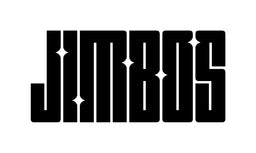Optimum No Rinse (ONR) vs DIY Detail Rinseless: Which Works Better?
ONR was the original rinseless wash that started the trend. DIY Detail’s Rinseless Wash is the new competitor with updated marketing and polymer claims. But which one actually works better—and do either beat a foaming soap? Let’s break it down.
- ONR: Trusted, proven, and safe on light dirt. Simple, no-frills formula.
- DIY Detail Rinseless: Similar idea with modern marketing and added polymers. Works, but not revolutionary.
- Best for beginners: A traditional foam pre-soak with The Super Soaper still outperforms both in safety.
Want the Safest Option?
A foaming pre-soak with high-lubricity soap is always safer than any rinseless product—especially for beginners.
The Background: What Is ONR?
Optimum No Rinse (ONR) was the first rinseless wash product to gain mainstream use. It uses polymers that surround dirt particles, allowing you to wipe and dry without rinsing. ONR has been used by enthusiasts and pros for years, especially in winter or water-restricted areas.
What Is DIY Detail Rinseless?
DIY Detail Rinseless is a newer competitor. It claims improved polymers for lubrication and gloss, marketed heavily through YouTube. The reality: it works similarly to ONR, with minor differences in feel and scent. It’s not a bad product—but it’s not a game-changer either.
ONR vs DIY Detail: Side-by-Side Comparison
| Factor | ONR | DIY Detail Rinseless |
|---|---|---|
| Lubrication | Good, but slightly grabby on dry paint. | Slightly slicker feel, still not foam-level. |
| Ease of Use | Simple, mix and go. Lower learning curve. | More “showy” marketing, but requires same care. |
| Gloss | Minimal change. Doesn’t leave protection. | Claims gloss boost, but subtle in reality. |
| Safety | Safe on lightly dirty cars. | Safe on lightly dirty cars. |
| Best Use Case | Garage-kept, dusty cars. Winter wipe-downs. | Same—light dust, quick maintenance. |
When Rinseless Works (and When It Doesn’t)
- Works: Light dust, garage cars, winter maintenance, no-hose situations.
- Doesn’t work: Muddy vehicles, road film, sandy paint, or neglect. These need a foam + rinse.
Think of rinseless as a touch-up option, not a replacement for safe washing.
Why Foam Soap Still Wins
Both ONR and DIY Detail Rinseless claim to be safe, but neither can beat the dirt-lifting power of foam. A proper foaming soap like The Super Soaper pre-soaks the car, breaking down grime before you touch the paint. This makes it safer for beginners and better at preventing swirls.
The Safe Wash Alternative
Rinseless can work in certain cases—but if you want the safest option, stick with foam. Super Soaper + microfiber = scratch-free results.
Related Guides
Rinseless vs Traditional Wash
Do You Need a Rinseless Wash?
How Rinseless Washes Work
FAQ: ONR vs DIY Detail Rinseless
Is DIY Detail Rinseless safer than ONR?
No. They’re similar in safety. Both require proper technique and should only be used on lightly dirty cars.
Which one gives better gloss?
DIY Detail claims a gloss boost, but it’s subtle. Neither replaces true protection like Tough As Shell.
Why not just use foam?
Foam washes are safer and more effective on dirty cars. Rinseless is a backup method for limited situations.
Can I use rinseless as a clay lube?
Yes. Both ONR and DIY Detail rinseless can be diluted and used as a clay lubricant.



